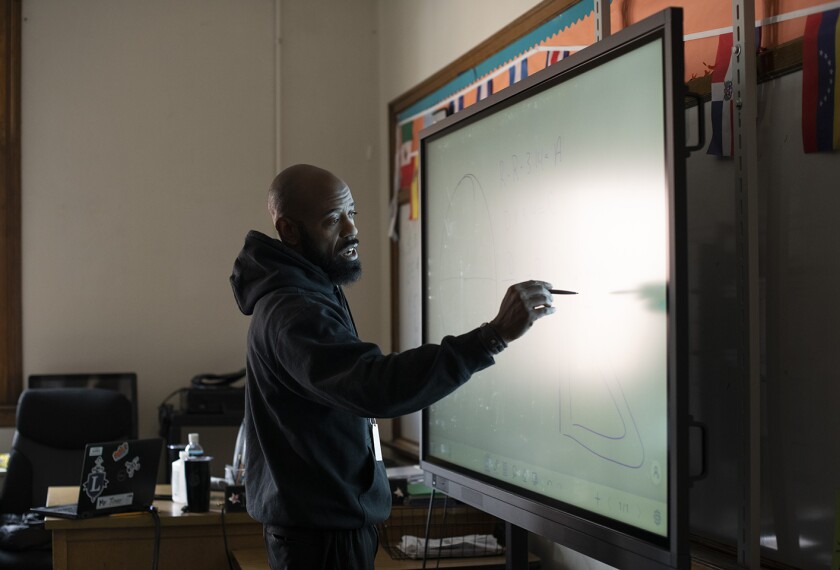Dealing with student behavioral and mental health issues has been many teachers’ biggest barrier to addressing unfinished learning, according to a Khan Academy survey published July 26.
Nearly 7 in 10 teachers who participated in the survey chose “student behavioral issues” as a barrier to addressing unfinished learning, and 57 percent of teachers chose “student mental health.”
The nationally representative survey of 639 teachers, conducted last month by market research and data analytics firm YouGov for Khan Academy, explores teachers’ views on addressing unfinished learning, the use of mastery learning, providing feedback to students, and the grading system. It comes as schools prepare to continue the work of helping students catch up on unfinished learning that developed during the COVID-19 pandemic.
Another theme on the list of barriers to addressing unfinished learning is teachers’ finite time. Sixty-one percent of teachers said there are “too many demands on my time,” 53 percent said there’s “not enough flexibility or time in the school year to pause and address issues,” 41 percent said “lack of time in the school day,” and 38 percent said “lack of planning time.”
But even with all these hindrances, the survey found that during the 2021-22 school year, more than 9 in 10 teachers said they were able to identify the learning gaps that need to be addressed among their students. And 59 percent of teachers said their students mastered the content they needed to during the 2021-22 school year.
The method that is most helpful in identifying learning gaps is “working individually with students during class,” according to 78 percent of surveyed teachers. That strategy is followed closely by “classroom assessment” (74 percent), “asking students questions in class” (70 percent), and “student classwork/homework” (70 percent).
Teachers also said that the most important changes in school needed to help students catch up don’t directly deal with academics: Sixty percent said there needs to be more emotional and behavioral support and 56 percent said there needs to be more family engagement. The third most popular option is tied between having “less rigid district pacing guidelines” and “consistent small group instruction,” both supported by 52 percent of respondents.
The importance of mastery learning
The survey also found that an overwhelming majority (84 percent) of teachers agree that mastery learning can help address unfinished learning, but only a small majority (53 percent) use mastery learning in their classrooms. Mastery learning means knowing which skills a student has mastered and not mastered, providing feedback on what students got wrong and why, offering as many opportunities as needed for students to demonstrate mastery, and continuing to provide instruction until a skill is mastered.
More than 90 percent of respondents said it was “very” or “extremely” important to do that.
The same issues that are barriers to addressing unfinished learning are also obstacles to implementing mastery learning, according to the survey. Sixty-five percent of teachers said “lack of time” and 55 percent said “student behavioral issues.” But 49 percent of teachers also said having large class sizes is a barrier to implementing mastery learning.
Teachers want more time to give feedback to students
More than 6 in 10 teachers said they feel like they don’t spend enough time providing feedback to students. On average, teachers spend 8.6 hours providing feedback, but the survey found that teachers would like to spend 12.2 hours on average on providing feedback.
The survey found that 84 percent of teachers use the traditional grading system, but 66 percent of teachers agree that a standards-based grading system would be better than traditional letter grades. A standards-based grading system breaks down the subject into smaller learning targets and grades students based on their mastery of those targets, instead of having an overall letter grade for the subject based on many assignments. More than 6 in 10 teachers said Ds and Fs cause students to lose motivation, and half of the respondents said that Ds and Fs discourage students from working to catch up.
Despite liking the concept of standards-based grading, 71 percent of teachers said letter grades provide an incentive for students to succeed. But students shouldn’t be receiving only letter grades, they said. About 3 in 4 teachers agreed that it’s important to provide behavioral feedback in letter grades, and 71 percent said including behavioral feedback in letter grades teaches important life skills.







